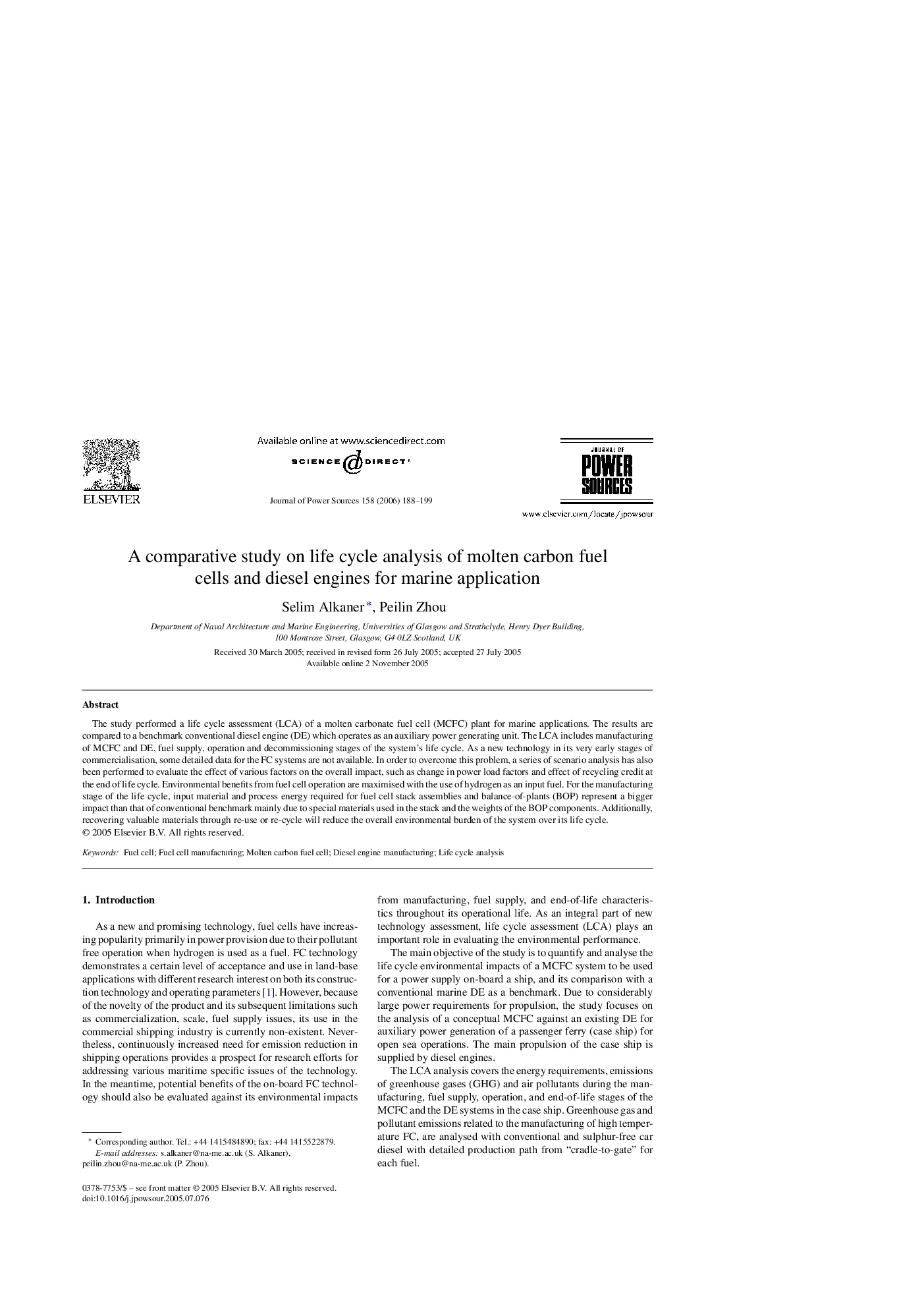| Article ID | Journal | Published Year | Pages | File Type |
|---|---|---|---|---|
| 1287561 | Journal of Power Sources | 2006 | 12 Pages |
The study performed a life cycle assessment (LCA) of a molten carbonate fuel cell (MCFC) plant for marine applications. The results are compared to a benchmark conventional diesel engine (DE) which operates as an auxiliary power generating unit. The LCA includes manufacturing of MCFC and DE, fuel supply, operation and decommissioning stages of the system's life cycle. As a new technology in its very early stages of commercialisation, some detailed data for the FC systems are not available. In order to overcome this problem, a series of scenario analysis has also been performed to evaluate the effect of various factors on the overall impact, such as change in power load factors and effect of recycling credit at the end of life cycle. Environmental benefits from fuel cell operation are maximised with the use of hydrogen as an input fuel. For the manufacturing stage of the life cycle, input material and process energy required for fuel cell stack assemblies and balance-of-plants (BOP) represent a bigger impact than that of conventional benchmark mainly due to special materials used in the stack and the weights of the BOP components. Additionally, recovering valuable materials through re-use or re-cycle will reduce the overall environmental burden of the system over its life cycle.
